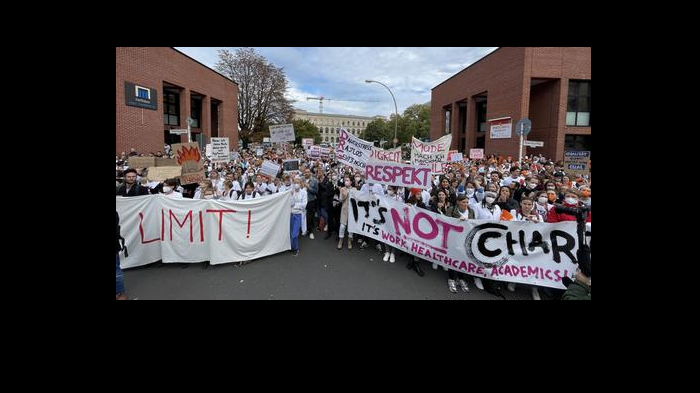Germany faces a significant shortage of doctors, both in clinics and communities, and is working to fill this gap by welcoming foreign doctors, particularly from Syria, Turkey, and Ukraine. However, foreign doctors encounter many obstacles that need to be overcome before they can be assigned to care centers or clinics. According to the German news agency, there are many pending applications with the authorities responsible for recognition and work permits, and the lengthy procedures cause frustration for those affected amidst the shortage of medical care.
Many German cities are seeking foreign doctors, such as the Mecklenburg Lake District, Taunus, and Thuringia. Some areas face difficulties in obtaining doctors. For instance, the —- district in Baden failed to secure a replacement for a gynecologist at the local medical care center, despite having already signed a contract with a Turkish doctor, as the official approval was significantly delayed. In the town of the —-, a Venezuelan doctor has been waiting for months to be recognized as a family doctor.
Many foreign doctors also suffer from long waits for recognition. For example, a Ukrainian doctor in the Eisenbach area has been waiting for recognition for months, despite having worked as a doctor in her home country for 27 years. She was forced to work as a trainee in the children’s ward. In Schwalbach, Hesse, a Colombian doctor is waiting for the license he applied for, which has not yet arrived despite his signing a contract with a clinic.
According to Ellen Lundershausen, Vice President of the German Medical Association, the number of foreign doctors has risen to 64,000, and this number is expected to increase in the coming years due to the continued migration of doctors to Germany. Syrian doctors ranked first, with 6,120 doctors in 2023, followed by doctors from Romania, numbering 4,668, and the rest from Russia, Austria, Greece, and Turkey. According to the head of the Expert Assessment Center for Health Professions, the number of foreign doctors has increased over the last six months, along with a growing number of applicants among refugees from Ukraine.
Notaries and doctors, along with other officials, review applications and documents at the Dörfler facility. Significant efforts are being made to attract foreign doctors. Some states are working to streamline procedures, such as the state of Neubrandenburg, which has implemented a program with a centralized contact point for authorities. The state has also employed 11 Mexican doctors to gain additional qualifications. Additionally, Bavaria is using artificial intelligence to overcome the obstacles faced by applicants.
However, the efforts of some states to ease the obstacles are not entirely successful. According to the head of the evaluation center in Dörfler, the increase in applications from Turkey and Ukraine has led to significant congestion, and staffing levels at the authorities are not keeping pace with developments. The equivalency test duration ranges from 6 to 8 months, and can extend to a year in some cases. According to the Vice President of the Medical Association, the complex recognition process poses the risk of long waiting periods.





